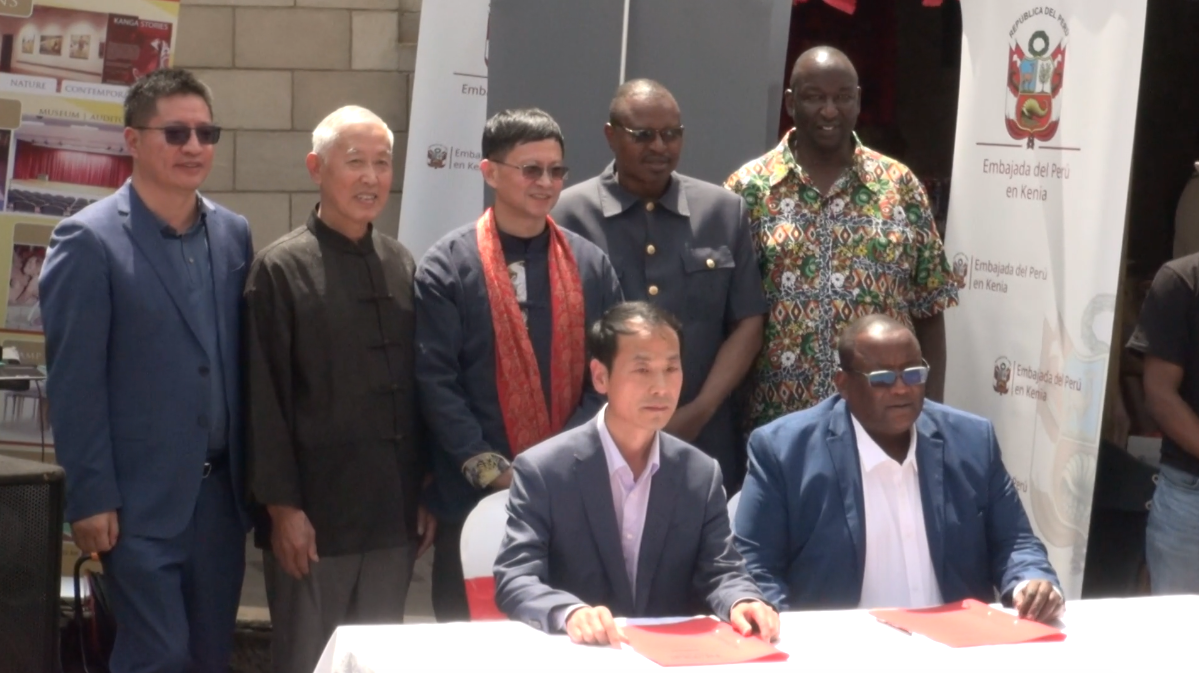The volumes of Kenya’s tea exports into China are set to increase following the signing of yet another Memorandum of Understanding between Kenyan and Chinese firms on Saturday.
The deal entered into by Meru-based Njeru Industries Ltd and Zonken Food and Agriculture Limited in Nairobi, during the 9th Nairobi International Cultural Festival held at the National Museums of Kenya, outlines a framework for cooperation between the two companies, focusing on enhancing the quality and market reach of Kenyan black tea through advanced processing and packaging techniques from China.
“Kenyan tea leaves are very good quality but the value of the product is lower. That’s why we want to combine the Chinese technology and Kenya’s good quality tea leaves to create the best tea for export,” said William Zhou from Kenya Chinese Chamber of Commerce after witnessing the deal
Zonken Food and Agriculture Ltd’s leadership notes that there is currently an increasing demand for black tea in China. In the latest deal, Zhou disclosed that Chinese tea masters will come to Kenya to ensure the required quality of the final product to be sold outside the country.
“Everybody knows, Kenya is the largest producer of black tea and the third largest exporter. But the export value is not so high. That is why we want to bring Chinese tea masters to train our Kenyan partners to add more value to the tea and increase exports,” he said at the event dubbed “Tea For Harmony Yaji Cultural Salon” in the National Museums of Kenya.

Njeru Industries Ltd Chief Executive Officer Henry Njeru lauded the pact noting that Kenya will benefit greatly from it, especially in terms of the exchange of technologies.
“China has been in the tea business for over 2000 years while Kenya has been there about 100 years. We have a lot to learn from the Chinese counterparts on how to produce different teas,” said Njeru after the signing of the deal
“Their culture is broad and if we could focus on exporting to these value-added countries maybe we will get a better price because currently we suffer low prices at Mombasa auction and manufacturers are looking for new markets. China is a big market for us to supply,” he added

Njeru said the deal will aid Kenya in getting a lot more exports to China and Asia. He is also optimistic that the agreement will get a good percentage of Kenyan tea to get better bottom prices than the ones we sold in bulk at the auction.
“The prospects are good because the clones they used to develop were for green tea. Now they (the Chinese) are chasing black tea and Kenya has clones of black tea with good flavours and unique characteristics. I think we are well placed for their black tea market,” said Njeru
Joseph M’eruaki, Chairman of the Kenya Plant Health Inspectorate Service (KEPHIS) said the deal expands the scope and reach of Kenyan tea and can only translate to good tidings for Kenyan farmers.
“Access to the Chinese market is a great thing for us in our tea industry given the size of the Chinese Market. China is not only the second-largest economy but it is a country with the largest middle-income population, and this access will benefit Kenyan farmers,” said KEPHIS Chairman
While welcoming the deal between the two companies, Tang Jianjun, the Cultural Counsellor at the Chinese Embassy in Nairobi noted that tea is a vehicle for connecting China and the rest of the world besides trade.
“China has an idiom called “making friends with tea”. It means that by drinking tea together, you can express your happiness of meeting friends, pay tribute to friends, enjoy a good time, and increase the feelings between people. There are many such stories in China,” he said
The Director of Confucius Institute at the University of Nairobi Prof Wang Shangxue noted that Kenyan tea is increasingly becoming a favourite of Chinese people. She says this has partly been promoted by an influx of Chinese nationals who have made the country their holiday destination, and who end up sampling the Kenyan tea during their stay.
“We have a lot of Chinese tourists coming to Kenya every year. Whenever they visit they will buy Kenyan tea, they like Kenyan tea very much,” she said
Parties to the deal reiterate that the latest partnership agreement will boost the global competitiveness of Kenyan tea, which is already one of the country’s top export commodities.





